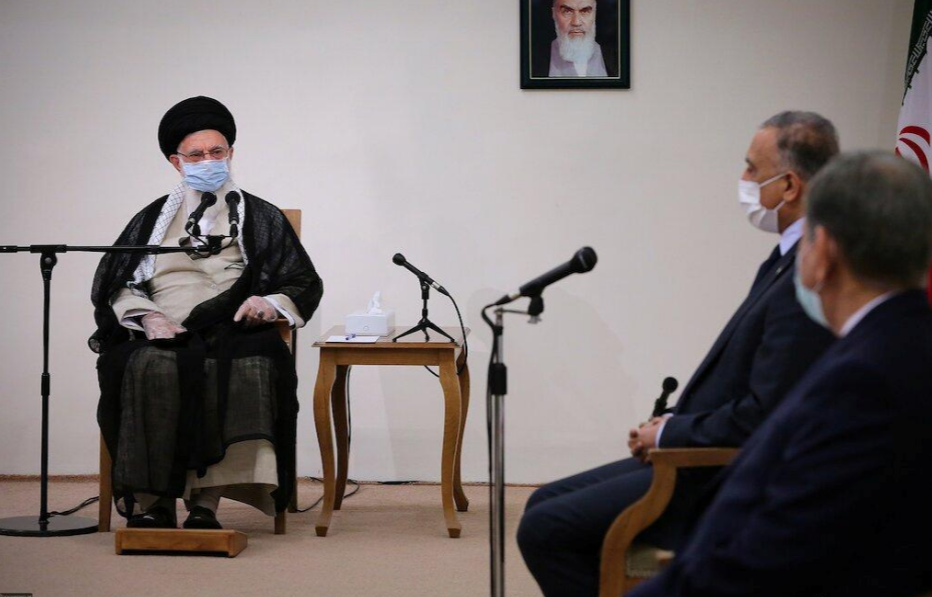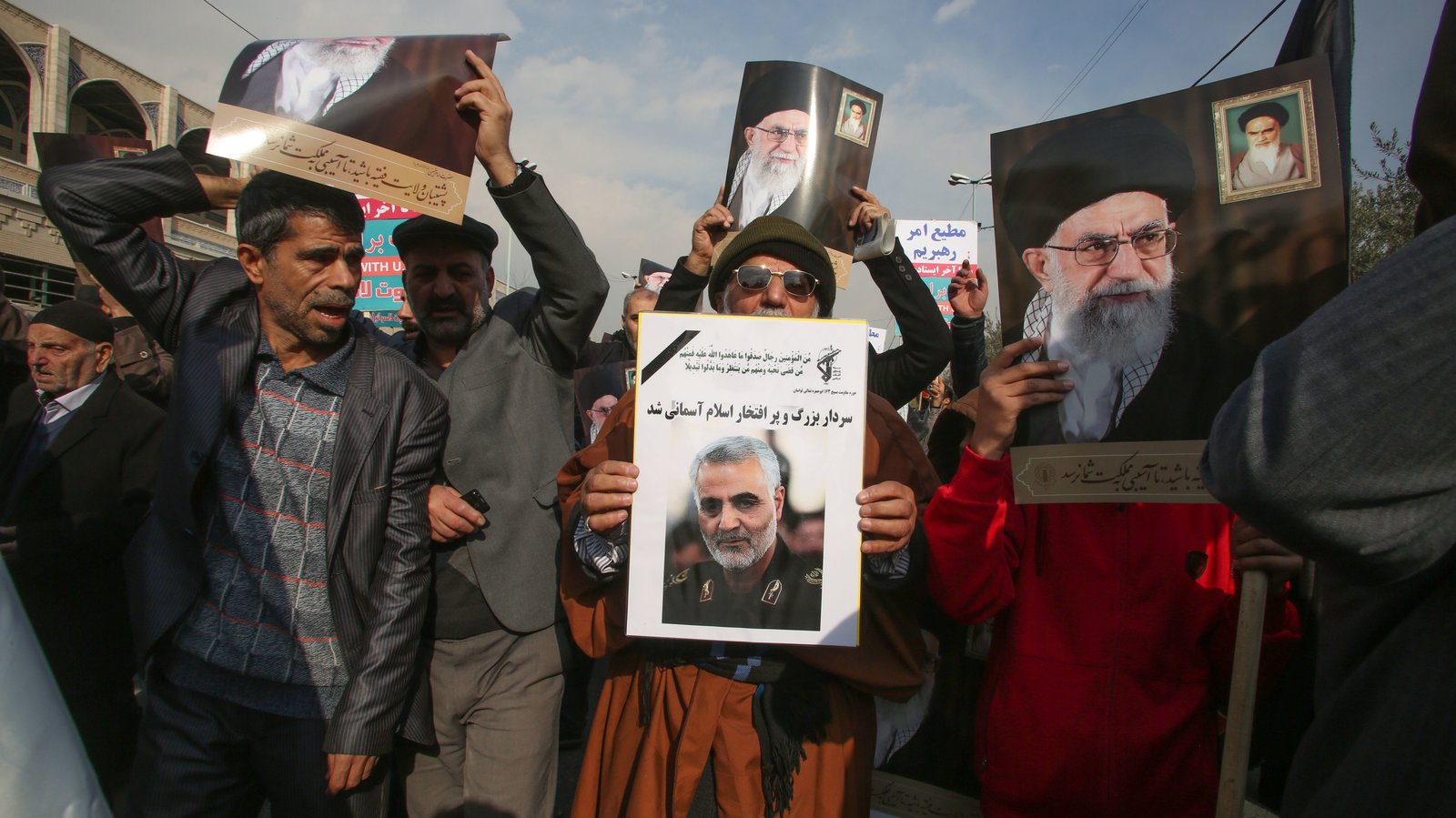Baghdad and Tehran sought on Tuesday to ease bilateral political tensions, as Iraq's prime minister said during his visit to Tehran that his country would not allow any threat to Iran coming from its territory.
Mustafa al-Kadhimi, speaking at a news conference in the Iranian capital alongside Iranian President Hassan Rouhani, alluded to Iraq's concern not to become a battlefield between Iran and the United States.
"The people of Iraq want good relations with the Islamic Republic of Iran based on the principle of non-interference in the internal affairs of both countries," he said at the press conference, broadcast live by Iran's state television.

Iran's Supreme Leader Ayatollah Ali Khamenei (L) meets with Iraqi Prime Minister Mustafa al-Kadhimi in Tehran, Iran, July 21 2020. /Reuters
Iran's Supreme Leader Ayatollah Ali Khamenei (L) meets with Iraqi Prime Minister Mustafa al-Kadhimi in Tehran, Iran, July 21 2020. /Reuters
The Iraqi premier faces a tough balancing act between Tehran and Washington, which have come close to open conflict in the region, particularly on Iraqi soil, over the past year.
At home, Kadhimi faces increasing pressure from Iran-aligned parties and paramilitary groups who perceive him as siding with the United States because he has indicated he wants to curb the power of Iranian-backed militias and political groups.
Read more:
The Iranian case, an uncontrolled U.S. foreign policy, a new threat for the world
Could Iran detain Donald Trump?
Iran's Supreme Leader Ayatollah Ali Khamenei, during a later meeting with Kadhimi, praised the Popular Mobilization Forces, an Iraqi state-controlled institution that is an umbrella grouping of militias, many backed by Iran.
Khamenei also said Iran would not interfere in relations between Iraq and the United States, according to his official website.
Kadhimi, making his first foreign trip as premier, said at the press conference that Iraq was a country "that won't allow any aggression or challenge to Iran from its territory."
In Kadhimi's first two months in office, Iraqi security forces carried out two raids against militias but most of those arrested were quickly released.
The United States praised those moves.

Iranian demonstrators hold posters of slain general Qasem Soleimani (C) and the country's supreme leader, Ayatollah Ali Khamenei, during a rally in the capital, Tehran. /AFP
Iranian demonstrators hold posters of slain general Qasem Soleimani (C) and the country's supreme leader, Ayatollah Ali Khamenei, during a rally in the capital, Tehran. /AFP
'Reciprocal' strike
But Khamenei also vowed a "reciprocal blow" at the United States for killing an Iranian senior commander in Iraq in January.
"Iran will never forget this issue, and will certainly strike a reciprocal blow at the Americans," Khamenei made the remarks while meeting with Kadhimi on Tuesday.
Read more:
UN expert deems U.S. drone strike on Iran's Soleimani an 'unlawful' killing
Iranian Foreign Minister Mohammad Javad Zarif visited Baghdad on Sunday, making a stop at the site where a U.S. drone strike killed Iranian general Qasem Soleimani and Iraq's paramilitary chief Abu Mahdi al-Muhandis in January.
A U.S. airstrike on January 3 killed Soleimani, former commander of the Quds Force of Iran's Islamic Revolution Guards Corps (IRGC), along with an Iraqi militia commander, near the Baghdad International Airport.
In retaliation, the IRGC hit the U.S. base of al-Asad in Iraq on January 8 with a wave of surface-to-surface missiles.
(Cover: Iranian President Hassan Rouhani and visiting Iraqi Prime Minister Mustafa al-Kadhimi are reviewing Iran's guard of honor during a welcome ceremony in Tehran, Iran, July 21, 2020. /Reuters)
(With input from agencies)